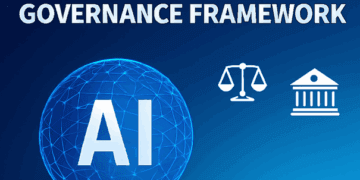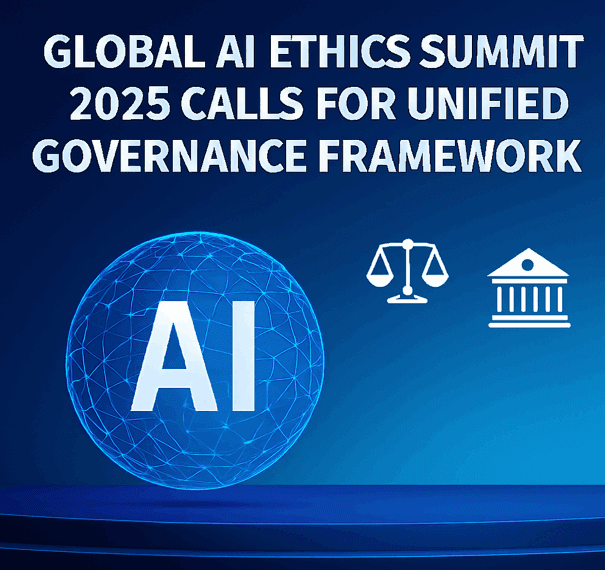On October 1–3, 2025, Geneva hosted the Global AI Ethics Summit, bringing together policymakers, technologists, ethicists, and civil society leaders from over 40 countries. Organized by the International Telecommunication Union (ITU) in collaboration with 40+ UN agencies and private sector partners, the summit aimed to establish a unified governance framework for artificial intelligence (AI) that promotes transparency, equity, and accountability.
Key Themes and Objectives
The summit focused on five core pillars:
- Ethical AI Design: Embedding fairness, bias mitigation, and explainability
- Global Standards: Harmonizing regulations across borders
- Inclusive Access: Ensuring AI benefits reach marginalized communities
- Security and Defense: Addressing risks of autonomous weapons and surveillance
- AI for Good: Accelerating progress toward UN Sustainable Development Goals (SDGs)
ITU Secretary-General Doreen Bogdan-Martin emphasized, “AI must be a force for good, not a source of division. We need shared norms and inclusive governance to ensure it uplifts humanity.”
Highlights from the Summit
- AI Readiness Workshop: Showcased tools for low-resource languages and accessibility
- Voice2Sign Project: Demonstrated AI-powered sign language translation for the hearing-impaired
- AI Policy Bites: Roundtable with Yale Digital Ethics Center and Lenovo on regulatory frameworks
- AI for Social Impact Awards: Recognized projects using AI for disability support, disaster response, and education
India’s Role and Advocacy
India’s delegation, led by External Affairs Minister S. Jaishankar, advocated for a global AI agenda rooted in trust, safety, and inclusive development. India proposed a multi-tiered governance model balancing innovation with ethical safeguards. The delegation also highlighted India’s AI initiatives in agriculture, healthcare, and education.
Concerns Around AI Militarization
Parallel to the summit, the Global Conference on AI, Security and Ethics (#AISE25) addressed the growing risks of AI in defense. UNIDIR and Microsoft co-hosted sessions on autonomous weapons, algorithmic warfare, and the need for binding international treaties. The First Committee’s Draft Resolution A/C.1/79/L.43 was discussed, urging member states to submit views on AI’s impact on peace and security.
Proposed Governance Framework
The summit proposed a draft framework with the following components:
- Transparency Mandates: Public disclosure of training data and model architecture
- Bias Audits: Independent review of algorithmic fairness
- Global Registry: Centralized database of high-risk AI systems
- Ethical Certification: Voluntary compliance labels for responsible AI
- Multistakeholder Oversight: Inclusion of civil society, academia, and industry in governance
While some countries pushed for binding treaties, others favored flexible guidelines. The framework remains under negotiation, with a final draft expected by Q1 2026.
Tech Industry Participation
Major tech firms including Lenovo, Microsoft, Google, and IBM participated in panels and workshops. Lenovo showcased its Voice2Sign avatar for Brazilian Sign Language and assistive tech for ALS patients. Microsoft emphasized its Responsible AI principles and called for interoperable standards across jurisdictions.
Public Engagement and Accessibility
The summit was livestreamed globally, with interactive Q&A via Slido and multilingual interpretation. Over 11,000 attendees joined online and in person. Poster sessions and lightning talks featured grassroots innovations from Africa, Latin America, and Southeast Asia.
Conclusion: Toward a Shared AI Future
The Global AI Ethics Summit 2025 marks a pivotal moment in shaping the future of artificial intelligence. As AI systems become more powerful and pervasive, the need for inclusive, transparent, and accountable governance grows urgent. With momentum building toward a unified framework, the summit laid the groundwork for a global compact that ensures AI serves humanity—not just markets or militaries.




















Comments 1